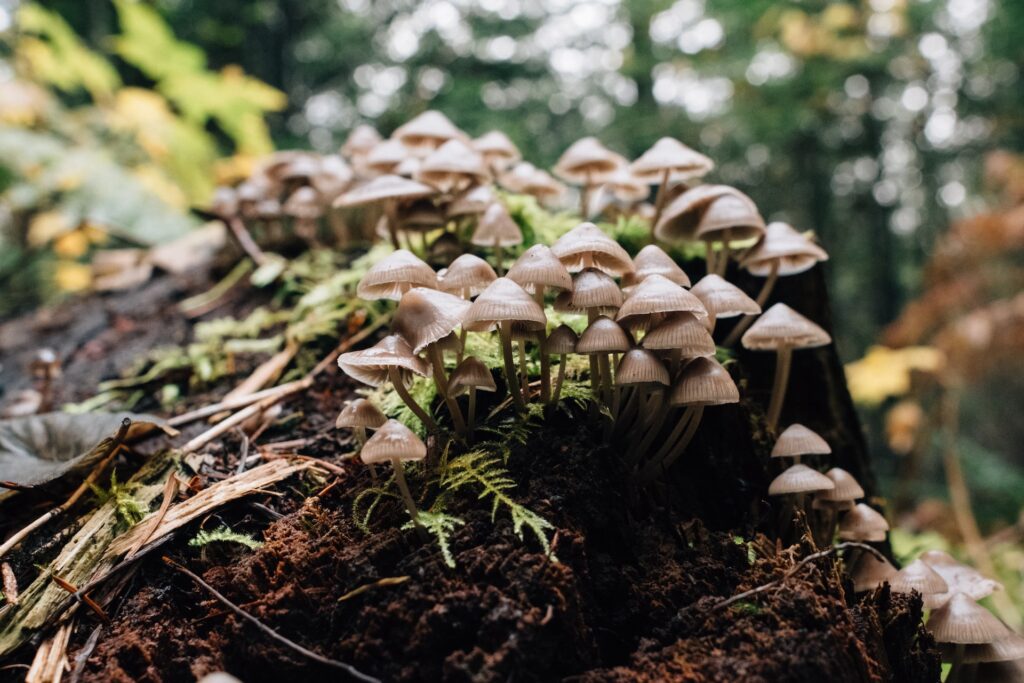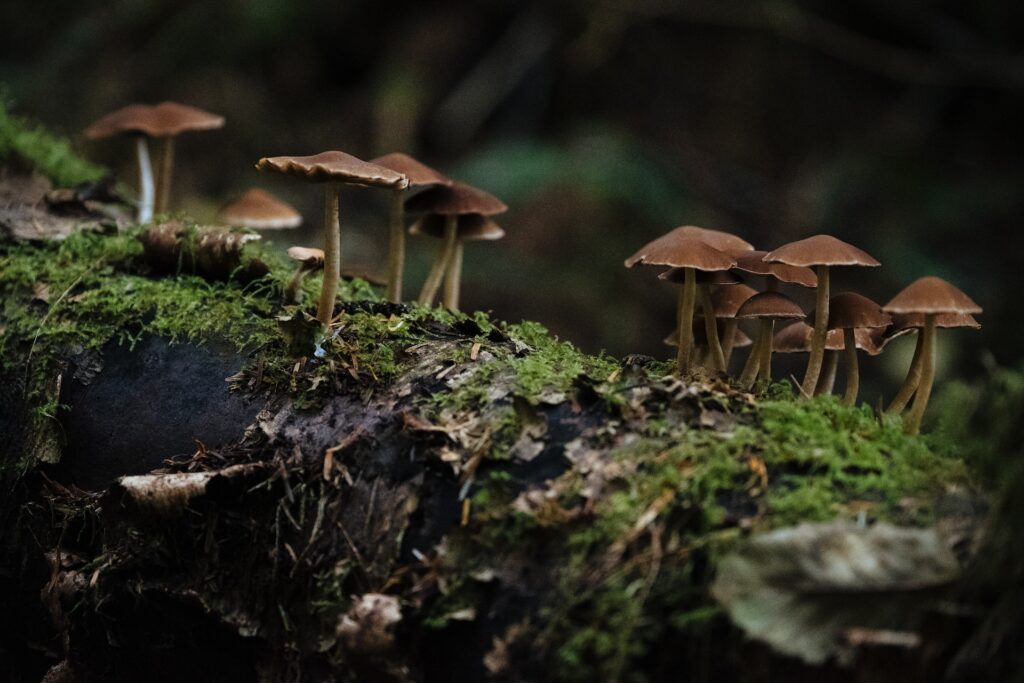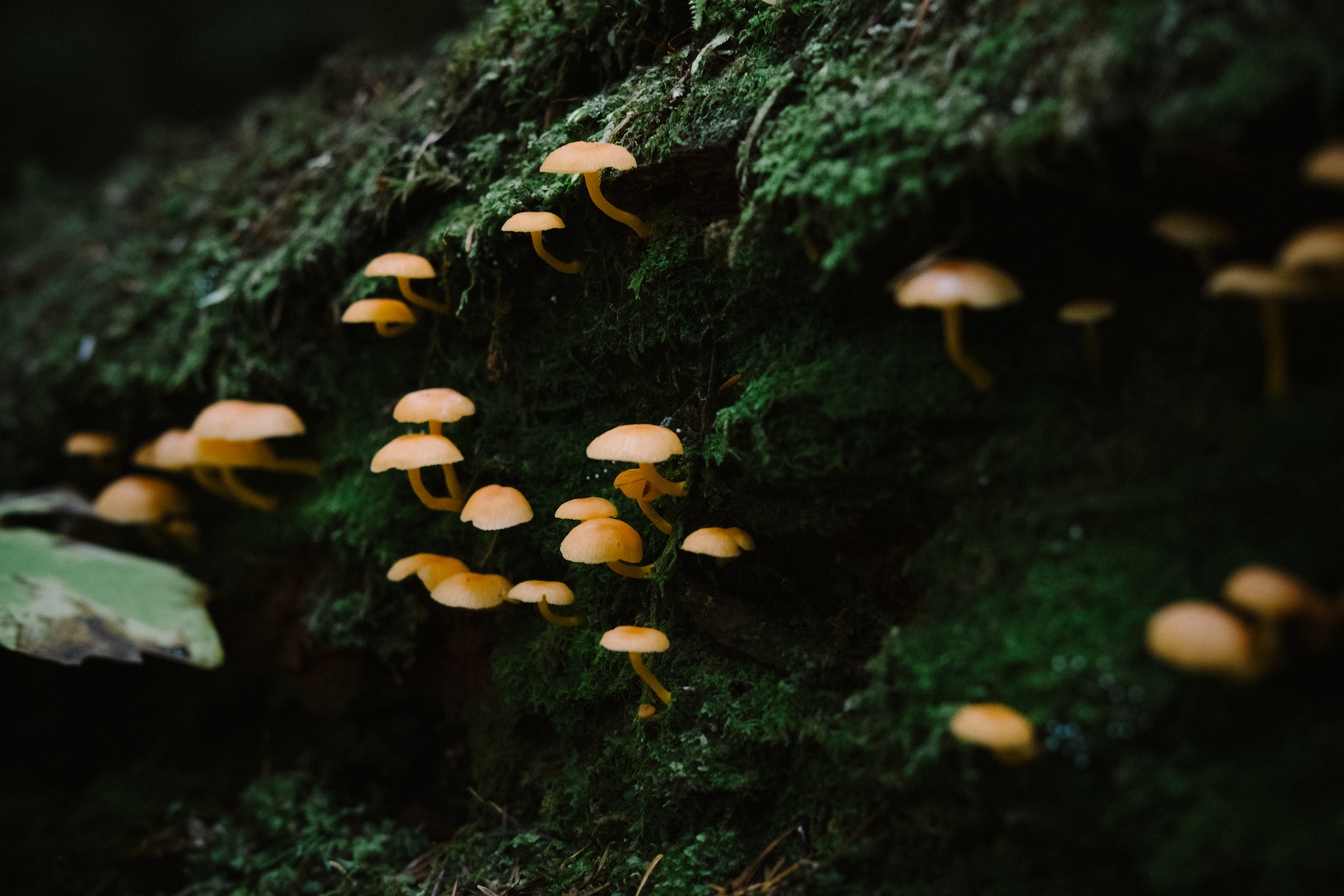Magic mushrooms, or psilocybin mushrooms, are renowned for their psychoactive properties, providing humans with an array of hallucinatory experiences. However, beneath the layers of their psychedelic reputation, they play an integral part in the ecological orchestra. This article will delve into this lesser-known role of magic mushrooms, their surprising contributions to various ecosystems, and the symbiotic relationships they’ve built.
The Ecological Role of Magic Mushrooms
The contribution of magic mushrooms to our ecosystems is an understudied phenomenon. They serve as powerful decomposers, breaking down organic matter like dead plants and animals, and returning vital nutrients to the soil. This process aids in the fertility of the soil and the cycle of life.

Furthermore, they often exist in symbiosis with plants, especially trees. This mutually beneficial relationship, known as mycorrhizal symbiosis, allows the fungi to draw nutrients from the tree while supplying it with water and essential minerals. Thus, magic mushrooms are integral to forest health and sustainability.
How Magic Mushrooms Influence Animal Behavior
Interestingly, the influence of magic mushrooms extends to the animal kingdom. Various insects and small animals have been observed to exhibit altered behaviors upon consumption. For instance, some insects become less likely to eat their usual food or display changes in their mating habits.
More surprisingly, several species are known to consume these mushrooms intentionally. Some do so as a defensive mechanism— the consumption of magic mushrooms can make them less palatable to predators. Others may even gain magic mushroom’s potential health benefits, much like humans have reported.
Magic Mushrooms and Humans: A Complex Relationship
The relationship between magic mushrooms and humans is as old as civilization itself. Ancient cultures utilized these fungi for their medicinal and spiritual properties, an understanding that establishments like House of Shrooms Vancouver now encapsulate in modern society. Cave paintings dating back thousands of years depict their use in religious ceremonies, underscoring their enduring significance.
Modern research has rekindled interest in the potential therapeutic effects of magic mushrooms. Studies suggest they can be beneficial for mental health conditions like depression, anxiety, and PTSD. However, it’s important to remember that these potential benefits don’t negate the potential risks associated with their misuse.

Environmental Impact of Magic Mushroom Harvesting
The rising popularity of magic mushrooms has led to increased harvesting, which can have a detrimental impact on local ecosystems. Overharvesting can deplete local mushroom populations and disrupt their ecological role.
It’s vital to harvest these mushrooms sustainably, if at all. Sustainable harvesting involves picking only mature mushrooms, leaving behind the young ones to ensure the population’s survival. Also, it’s important not to disrupt the mycelium, the part of the mushroom that remains underground and is crucial for its reproduction.
Future Directions: Conservation and Sustainable Use
Given the ecological importance of magic mushrooms, their conservation should be a priority. Preserving their natural habitats is crucial for maintaining the health of the ecosystems they support.
Promoting sustainable use is another important aspect. This includes educating the public about the proper ways to harvest magic mushrooms, if legal in their area, to minimize environmental impact.
Conclusion
Magic mushrooms, far from being merely a source of psychedelic experiences, play an important role in nature. They contribute to the health of our forests and influence the behaviors of various animal species. While their potential therapeutic benefits are promising, it’s crucial to approach their use with respect for their ecological importance and a commitment to sustainable practices. In doing so, we can ensure that magic mushrooms continue to play their part in nature’s symphony.
